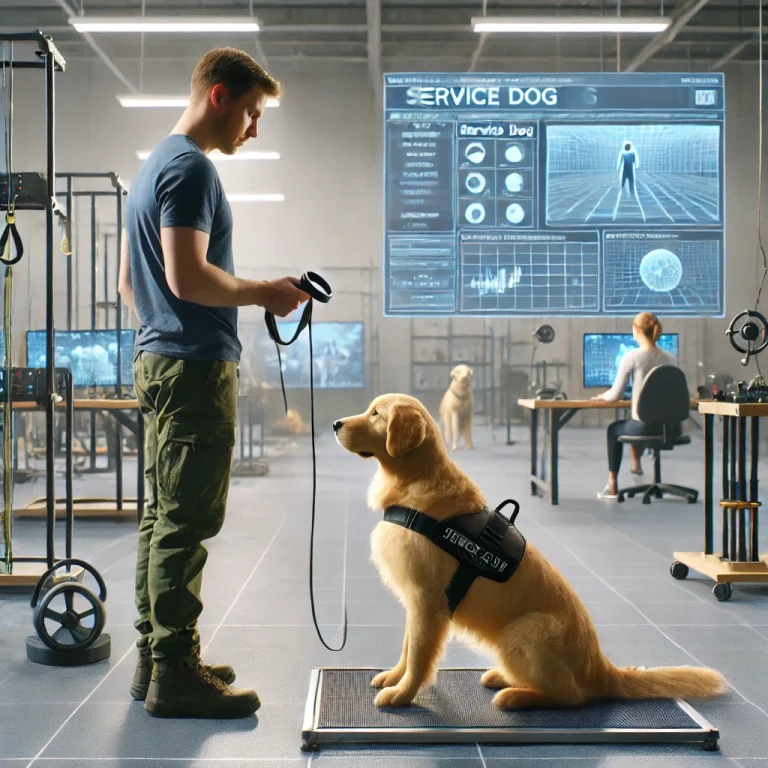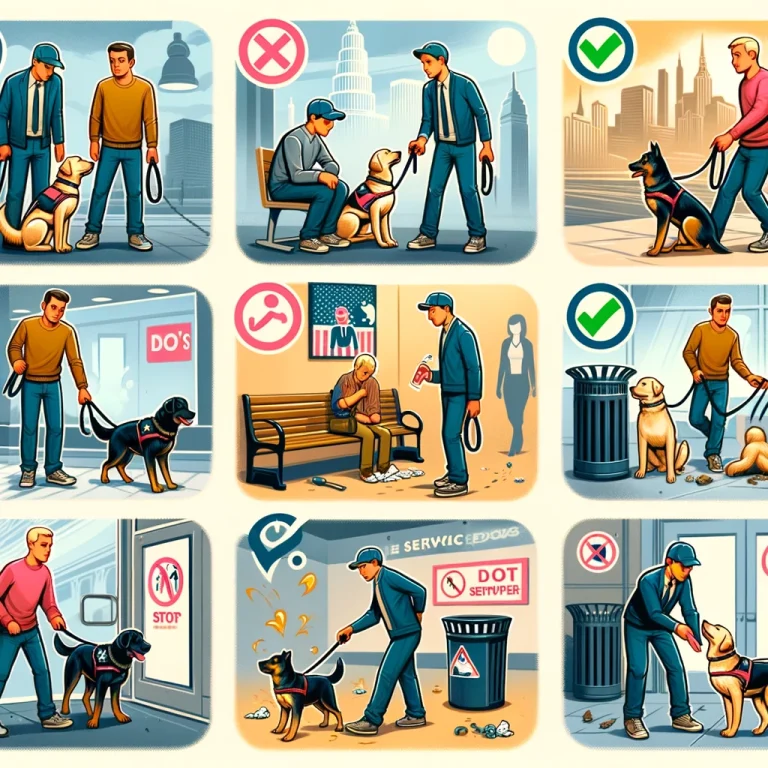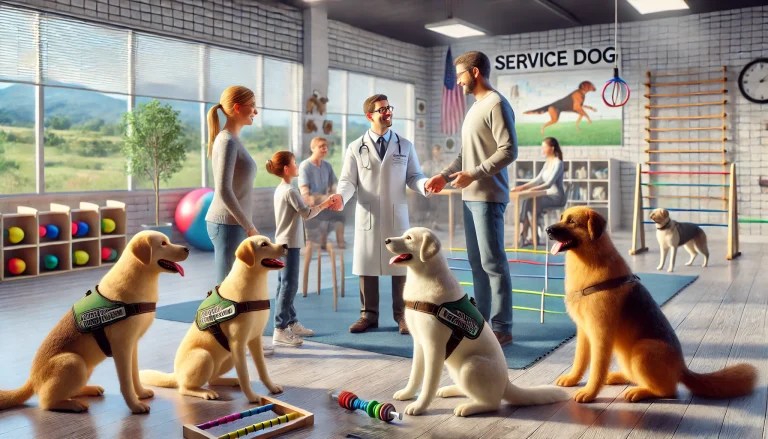Introduction: The Transformative Power of Service Dogs
Service dogs are more than just companions; they play a pivotal role in empowering individuals with specific disabilities. At ServicePupSolutions.com, we delve into how these trained dogs offer life-changing assistance. They are not just helpers but crucial partners in navigating the challenges posed by various disabilities. This comprehensive guide explores the roles, training, and immense value these service dogs bring to their handlers.
Broad Spectrum of Service Dogs
Service dogs cater to a wide array of disabilities, each type specializing in specific needs. Guide dogs, for instance, offer invaluable assistance to the visually impaired, helping them navigate the world with confidence. Hearing dogs alert those with hearing impairments to crucial sounds, enabling better awareness of their environment. Mobility assistance dogs provide support to those with physical limitations, aiding in everyday tasks and movements. Furthermore, psychiatric service dogs assist individuals with mental health issues, offering comfort and support in managing conditions like PTSD, anxiety, or depression.
In-Depth Training for Diverse Disabilities
The training for each category of service dog is rigorous and highly specialized. Guide dogs, for example, undergo intensive training to learn navigation and obstacle avoidance, ensuring safe travel for their handlers. Hearing dogs are trained to recognize specific sounds like alarms, doorbells, or phones, providing crucial alerts to their handlers. Mobility assistance dogs learn tasks such as retrieving dropped items, opening doors, or even helping with balance and transfers, enhancing their handlers’ independence. Psychiatric service dogs are trained to detect signs of emotional distress and perform tasks to mitigate anxiety or panic attacks, providing emotional grounding for their handlers.
Emotional and Psychological Benefits
The emotional and psychological benefits provided by service dogs are immense. They become a source of constant support, companionship, and security for their handlers. Especially for those dealing with mental health conditions, the presence of a psychiatric service dog can be life-altering. These dogs offer a sense of comfort, help manage stress, and can even interrupt harmful behaviors, contributing significantly to the mental and emotional well-being of their handlers.
Legal Rights and Accessibility
Under the Americans with Disabilities Act (ADA), service dogs are given legal rights to accompany their handlers in most public places, including businesses, schools, and transportation. This law ensures that people with disabilities have equal access and are not inhibited from participating in everyday activities due to the absence of their service animals. This legal recognition is crucial for the autonomy and independence of individuals with disabilities, enabling them to live fuller, more engaged lives.
The Imperative of Pet Insurance
Investing in pet insurance for service dogs is vital. Given their importance in the lives of their handlers, maintaining their health through regular veterinary care is crucial. Pet insurance helps manage the costs associated with their healthcare, ensuring these essential companions remain fit and able to perform their duties.
Choosing the Right Service Dog
Selecting the right service dog is a critical process that involves considering the dog’s breed, temperament, and specific skills. The suitability of a service dog for a particular disability is paramount for an effective partnership. This choice should reflect the handler’s lifestyle, the nature of their disability, and the specific tasks the dog will be required to perform. The right service dog can significantly enhance the quality of life and independence of its handler.
Continuous Training and Self-Training Adaptations
Service dogs require ongoing training to adapt to their handlers’ evolving needs, a crucial aspect ensuring their effectiveness and responsiveness. Regular training updates help maintain their skills, while self-training options offer a personalized approach to meet specific requirements. For those exploring self-training, ServiceDogOwners.com provides a wealth of resources, advice, and community support. This approach, demanding dedication and patience, can forge a uniquely personal and fulfilling bond between the handler and the service dog.
Navigating Public Environments
Service dogs are extensively trained to handle various public environments, a critical aspect of their role. They help their handlers navigate social settings, public transportation, and crowded places. This training ensures that individuals with disabilities can confidently participate in community life and public activities, further enhancing their independence and social interactions.
Specialized Mental Health Support
Service dogs specializing in mental health support provide unique assistance. They are specifically trained to identify signs of psychological distress in their handlers and offer interventions that can prevent or mitigate emotional crises. This specialized support is particularly beneficial for individuals with conditions like PTSD, anxiety disorders, or depression, contributing significantly to managing these conditions.
Addressing Unique Training Challenges
Training service dogs for specific disabilities involves overcoming unique challenges. Trainers must employ adaptive strategies and techniques to ensure these dogs meet the specialized needs of their handlers. Addressing these challenges requires flexibility, patience, and a deep understanding of both the disabilities and the capabilities of the dogs.
Impact on Families and the Broader Community
The positive impact of service dogs extends beyond the individual handlers to their families and communities. These dogs often bring peace of mind to families, knowing their loved ones have constant support. Additionally, they play a role in educating the public about disabilities, fostering a more inclusive and understanding society.
Conclusion: Service Dogs as Catalysts for Empowerment
Service dogs for specific disabilities are more than aids; they are catalysts for empowerment and independence. They provide not just physical assistance but also emotional and psychological support, improving the lives of individuals with disabilities. For a deeper understanding of service dogs and their roles, visit ServicePupSolutions.com, where we offer extensive insights and resources.
Need help self-training a Service Dog? Click Here for assistance.






